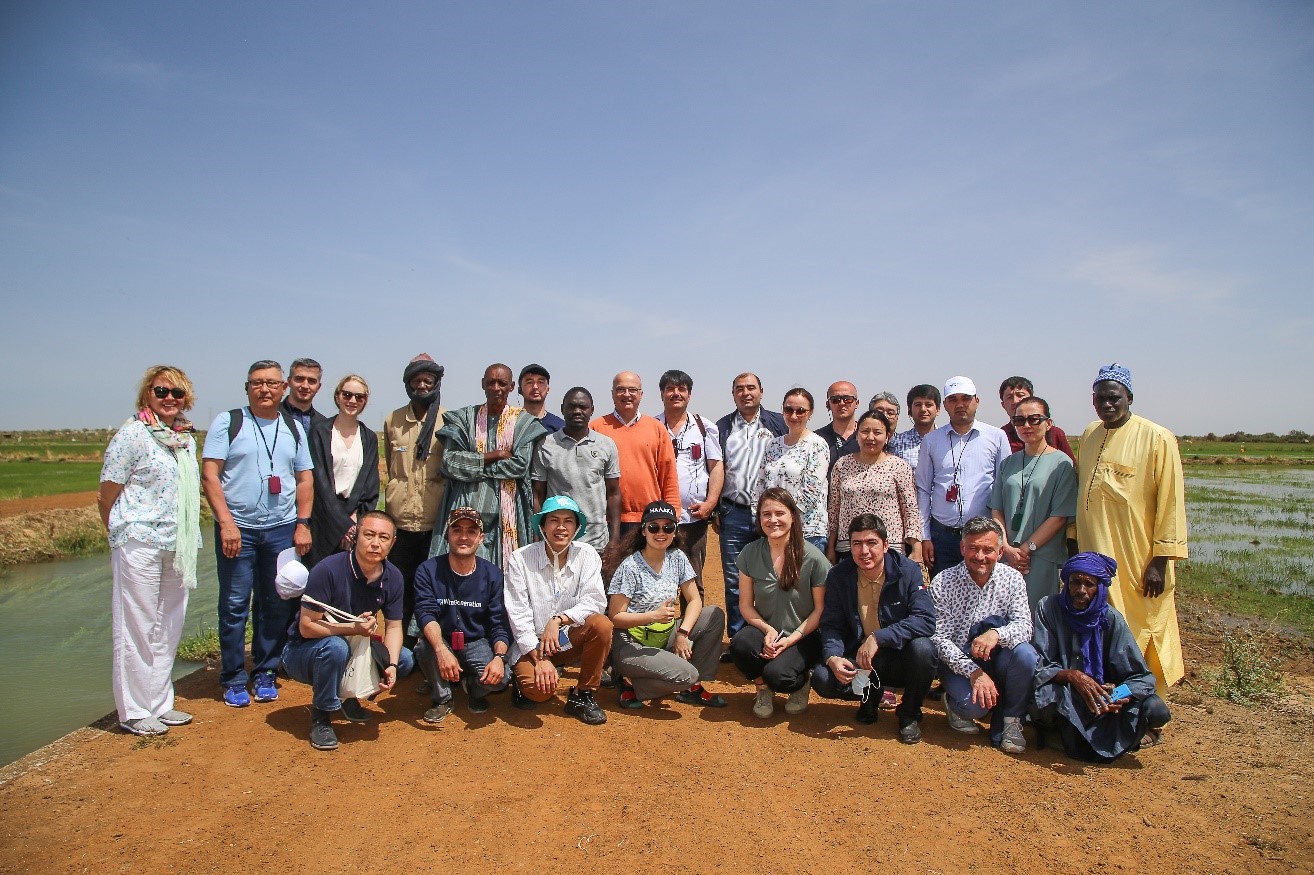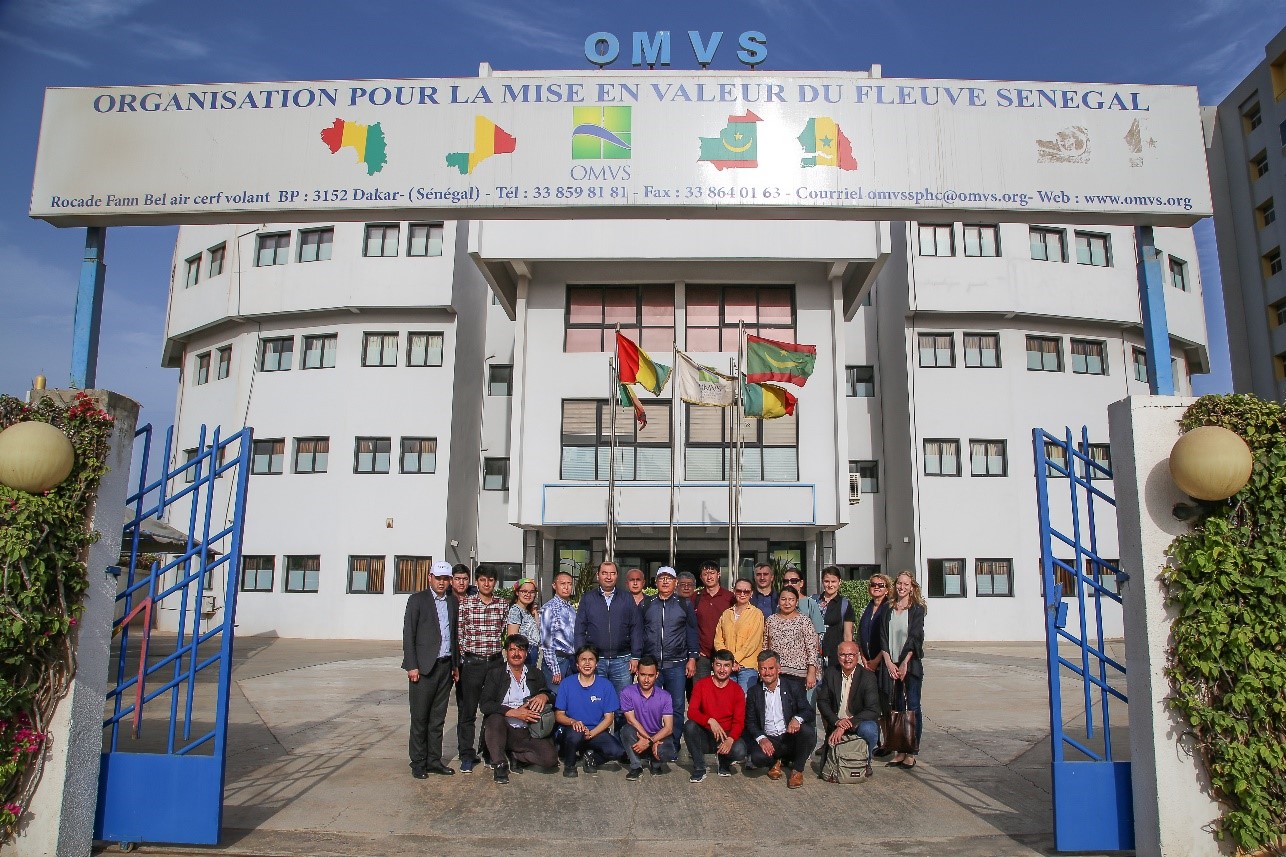
From 22 to 31 March 2022, a delegation from Central Asia visited the Senegal River basin as part of the Blue Peace Central Asia Project study tour. The delegation consisted of representatives from ministries of Central Asian countries, intergovernmental organizations such as ICWC and IFAS, as well as members of the regional Youth Water Network. CAREC, as the secretariat of the Blue Peace Platform, supported the organization of the study tour.
The Senegal River is transboundary as it is shared by four West African states - Senegal, Mali, Mauritania and Guinea. In the middle of the last century, the region was constantly experiencing prolonged uncontrolled periods of drought and flooding, which led to the deterioration of natural conditions and the disappearance of certain ecosystems. In 1972, the neighboring countries between Mali, Senegal and Mauritania decided to join forces to manage the basin's resources and protect against natural hazards and to establish the Organization for the Development of the Senegal River (OMVS), which was joined by Guinea in 2005. The Convention on the Status of the Senegal River recognizes the river as international, i.e. as the common and indivisible property of the riparian countries. Thus, cooperation in the management of its resources and infrastructure located on the river is based on the principles of solidarity, common use and equity. Thanks to the strong political will of the member states and the consensus reached by all the institutional structures for a rational sharing of costs and benefits among them, OMVS was nominated for the Nobel Prize as a benchmark of a basin structure that is a peacemaker and accelerator of sustainable development in the region.
The purpose of this study tour was to share knowledge and experience with basin organizations in Senegal and Gambia, to visit key water structures such as the Diama Dam and to learn about operation of the Manantali Dam.
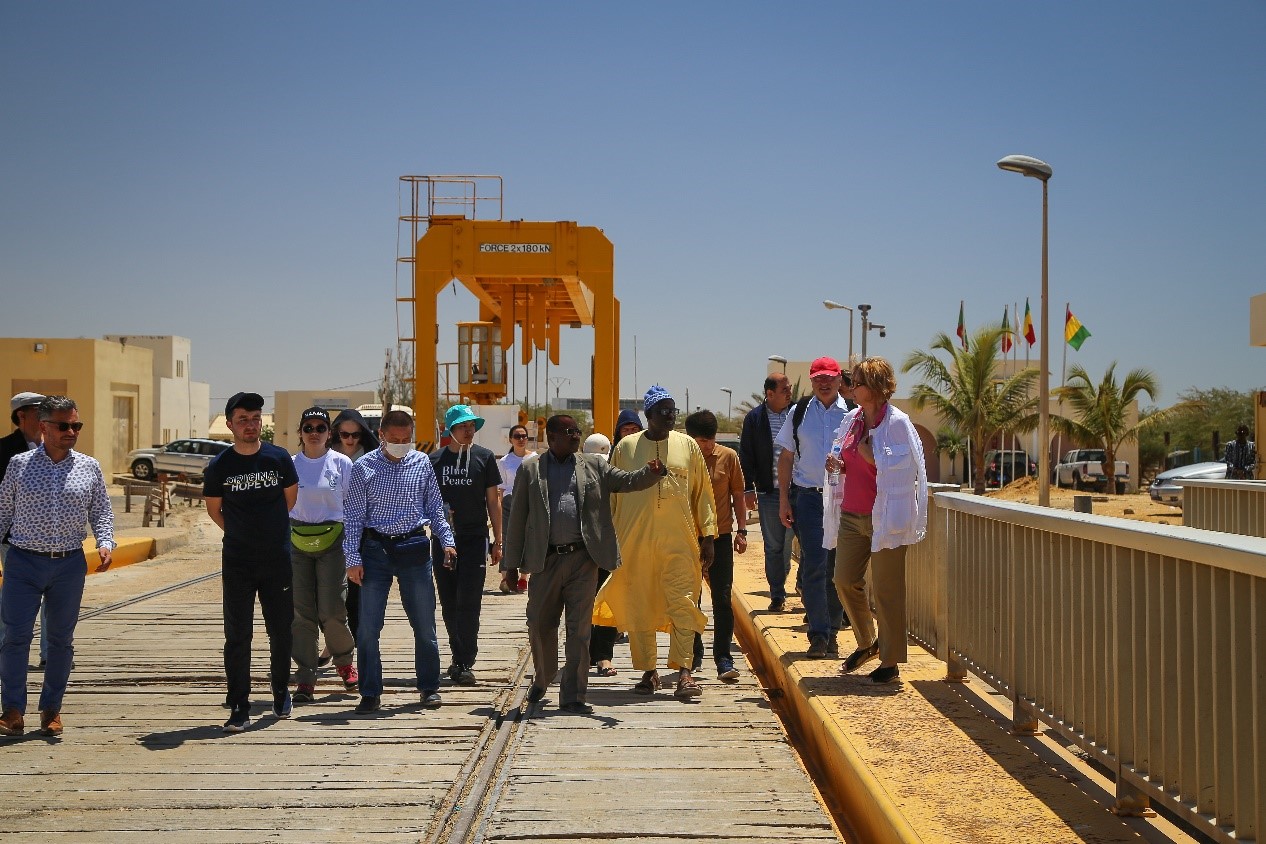
On 25 March, the delegation also participated at the World Water Forum's River Basins Day in Dakar, where participants exchanged experiences with basin organizations from other countries.
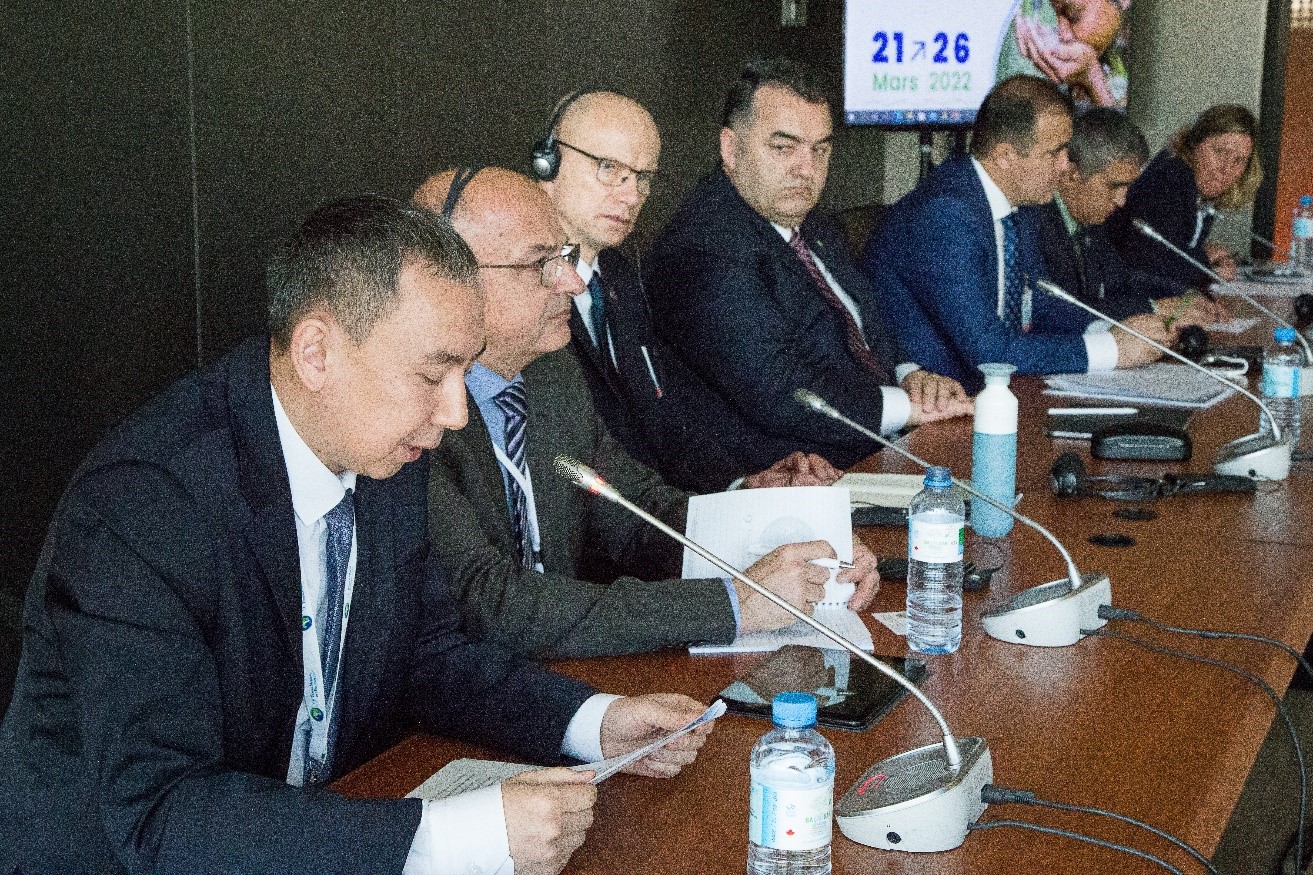
On 25 March, the delegation also participated at the World Water Forum's River Basins Day in Dakar, where participants exchanged experiences with basin organizations from other countries.
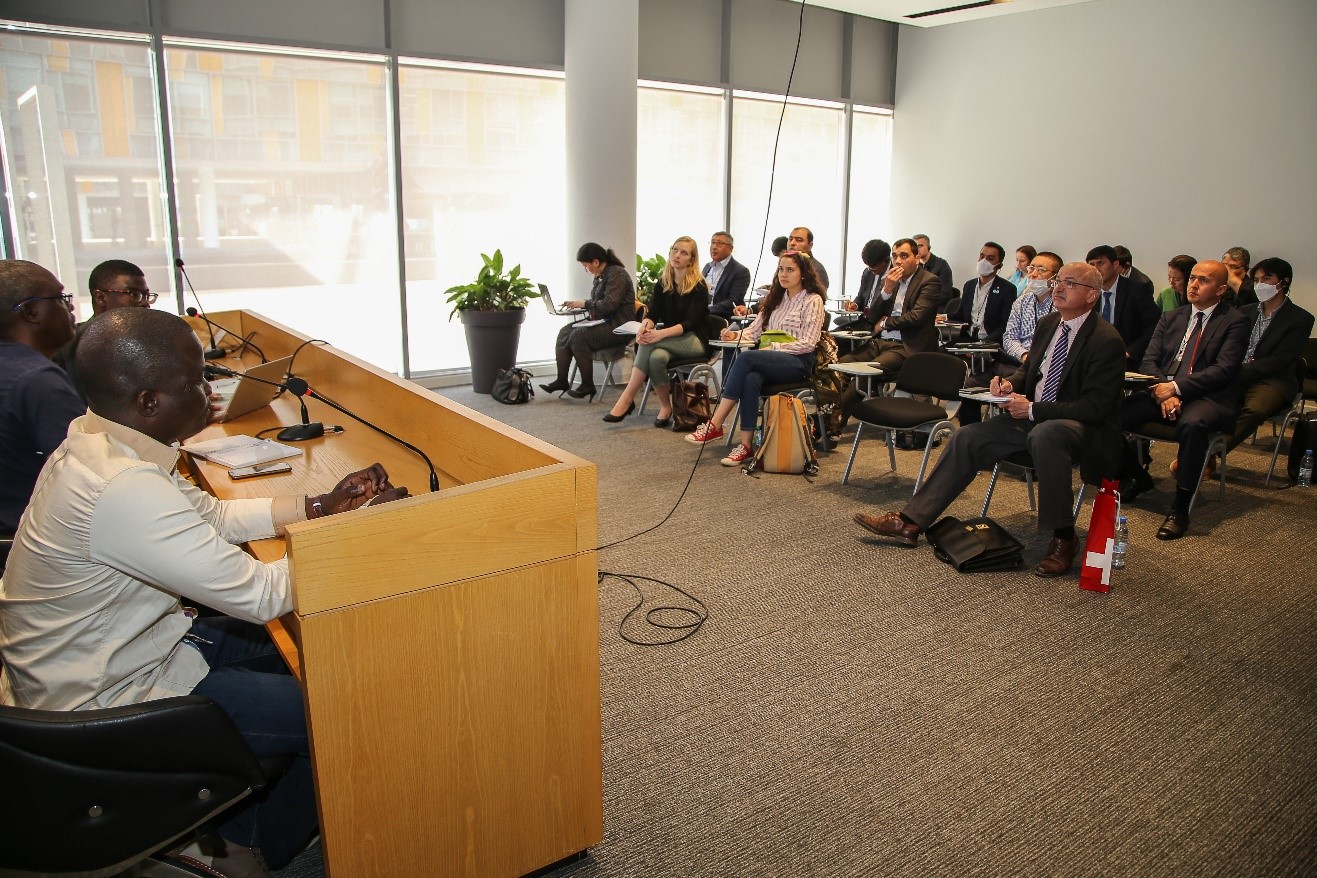
During the discussion Central Asian experts noted both similarities and differences in institutional and financial mechanisms of the Senegal river and the Syrdarya river basins. In particular, lack of water scarcity and common interests of Senegal basin's member-states allow solving the sensitive issue of water allocation within sectors and countries without conflicts. Also advantages of insurance mechanisms in irrigated agriculture, institutional and legal frameworks regulating activities of governing bodies, allocation of financing resources and data exchange were noted.
OMVS as a dialogue platform between the countries at transboundary level, between water users and actors at sub-national level proved its effectiveness and brings concrete benefits to the countries. Representatives of the countries noted the need for deeper study of OMVS experience and a return visit of representatives of African basin organizations to Central Asia. In general, the participants of the tour expressed their satisfaction with the information received during the discussions with the African colleagues and promised to use the accumulated knowledge to achieve SDGs 6.5.1 and 6.5.2 in the region.
